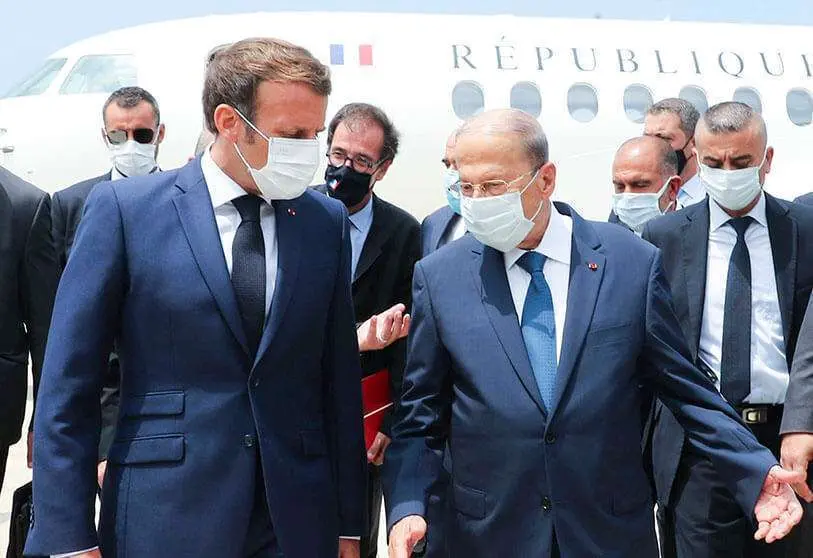Macron in Beirut: "Help will not go to corrupt hands"

It took Emmanuel Macron a day and a half to come to Beirut and give a message of solidarity to a country that is on the brink of the abyss after an explosion on Tuesday killed at least 137 people and injured 5 000 among the Lebanese population.
On his arrival, the French president has promised logistical, medical and research assistance. "My message is one of brotherhood, love and friendship from France to Lebanon, and we seek to secure international assistance for the Lebanese people," Macron said as he stepped off the plane at the airport in the Lebanese capital, where he was met by the president of the Middle Eastern country, Michel Aoun.
Macron was the first international leader to travel to ground zero. During his walk through downtown Beirut, and accompanied by a large number of television cameras, dozens of people shouted out against the Lebanese political class, calling the Lebanese president a "terrorist". In response to these protests, the French president said: "I have not come to help them (the Lebanese ruling class), but to help you," referring to a woman who questioned him in the street.

The explosion, which generated a huge shock wave, affecting thousands of homes and buildings, is suspected to be linked to a second detonation for reasons yet to be determined and which generated the deflagration of 2,750 tons of ammonium nitrate, according to the Lebanese government. Thousands of people have been injured and some 300,000 are homeless.
The detonation in the port of Beirut came at one of the worst times in Lebanon's history, with a fierce financial crisis, driven by the failure of the divided Lebanese Government to implement the reforms demanded by the international community to unlock billions of dollars in aid. The Lebanese authorities have estimated that the damage could be in the region of $3 billion to $5 billion.

In order to alleviate this situation, Macron has already announced its intention to organize a conference to raise funds for the former French protectorate, while noting that international assistance "will go directly to the Lebanese people. Potential donors are concerned that the money will not reach those who need it most, those who have lost everything in a matter of seconds, and that the money will be diverted by a corrupt ruling class that has brought the country to the brink of economic ruin, or even reach the militants of the Hezbollah terrorist group.

Despite years of colonial rule, the two countries have maintained close relations. Lebanese Foreign Minister Charbel Wehbe welcomed Macron's visit and told French radio Europe 1 on Thursday that "every time Lebanon suffers, France bleeds. Every time France suffers, Lebanon cries".
The Lebanese country has been officially in mourning for three days since Wednesday and Beirut is in a state of emergency under the supervision of the Armed Forces.








